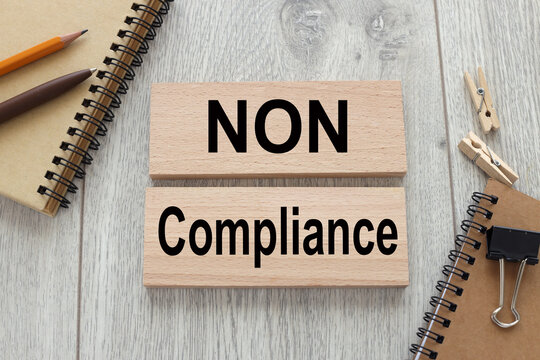Sanctions are penalties regarding financial or commercial activities. A country or group of countries may put it on another country, a group of people or organizations, or even an individual person. Though Sanctions themselves are essentially penalties, the consequences of sanctions non compliance are even more severe.
The penalties for disobeying or disregarding sanctions depend on the body that puts them in place. The major bodies that have the authority to create and place them are the OFAC, UN, EU, and the OFSI.
Intergovernmental authorities consider sanctions as part of International Law, and it is illegal for any country, organization or individual to break sanctions placed on another itself or another entity.

Consequences of Sanctions Non Compliance
The consequences of sanctions non compliance with sanctions depend on their nature. It is expected that sanctioned entities only operate within their limits. If a sanctioned nation attempts to conduct trade outside of its jurisdiction, then it can suffer heavy penalties.
Most nations conduct trade with ships. Ships can help to transport large amounts of goods at a time and can access any nation’s trading routes quite easily through their ports. Placing economic sanctions on countries essentially means putting a stop to their maritime trade activities. If any country or organization n the sanction watchlist attempts to move goods for export/import via sea, then the sanctioning body has the authority to seize and destroy the vessels in question.
Many sanctioned countries also unknowingly rope in ship providers and traders to transport their goods for them or illegally transport black money. This causes great harm to innocent parties if caught with the offending country’s goods. Hence, International bodies advise that all companies that deal in maritime trade conduct extensive checks on the parties and clients they deal with on a regular basis.
If any multinational corporations, banks, or other financial institutions break sanctions, then they may suffer unavoidable consequences. In many cases, the governing authority freezes their assets or levies heavy fines on them. Apart from this, they may also be branded as cooperative with criminals, which causes a heavy hit to their reputations.
Is accidental sanctions non compliance punishable?
Yes, sanctions non compliance of all kinds- be it intentional or not- is subject to penalties. However, the extent of the punishment may vary on whether the bank performed the non-compliance intentionally or not. In cases where the non-compliant entity was unaware that it was dealing with sanctioned entities, it is still seen as negligence on their side. Banks and other organizations which operate on an international level must operate with KYC and AML regulations in mind.
Whenever a company breaks sanction rules, the OFAC or OFIS conducts a thorough analysis on whether it was intentional and the extent of the damage. Based on these two factors, it decides on how to penalize the offending entity. Organizations that have shown similar behavior in the past are fined heavily for non-compliance and recurring negligence. In some cases, if the consequences are extremely severe, then they may also lose their business and assets.
Consequences for Individuals
The consequences for any individuals breaking sanction rules are rather similar to rules for entities and organizations. The most common consequences for individuals are implementing heavy fines on them or starting criminal proceedings.
According to the OFSI (Office of Financial Sanctions Implementation) of the UK, the penalty for serious financial breaches is set to around 1 million pounds or 50% of the amount lost during the breach- whichever is higher. The accused may also face up to seven years in jail.
The OFAC maintains two lists. The Specially Designed Nations lists contain records of International companies and individuals who have committed wrongdoings against the US. The other list, the Consolidated Sanctions Lists, contains a list of other parties that are on the Sanctions watchlist. The OFAC is generally stricter than the OFSI when it comes to penalties.
Anyone who breaks US/OFAC sanctions is subject to extremely heavy fines. This can range from a few thousand to millions of dollars, depending on the extent of the damage. Offenders also face prison time of up to 30 years.
Selected Sanctions
Different governmental bodies may deal with sanction-breaching entities differently.
For example, the OFAC caught HSBC moving funds for sanctioned entities in Cuba, Iran, Libya, Sudan, and Burma in 2012. At that time, these countries were on various sanction watchlists, and it was prohibited to engage with customers from these countries. The bank also partook in transactions related to money-laundering, helping to transact almost $881 million of dirty money via the US financial system. The OFAC fined the bank $1.3 billion for its role in facilitating illicit activities.
There are many such examples of banks facing the reputational consequences of sanctions non compliance.
The role of the Financial Action Task Force
The G7 countries created the FATF, an intergovernmental body, in 1989. The purpose of the FATF is to keep a close eye on any cross-border money laundering activities taking place. Its duties have since expanded to creating policies to deter terror funding and money laundering in any country. There are 39 member countries in the FATF. The FATF currently has two lists- the grey list and the Black list- which it uses to classify countries of concern.
Countries on the grey list do not suffer as severe repercussions as those on the Black List. The FATF places countries that turn a blind eye toward the spread of blatant money laundering and terror funding on the black list. The FATF has likely observed the beginnings of such activities in grey-listed countries. Placing a country on the grey list serves as a sort of warning for them. If they do not take any action against the spread of such activities, the FATF will most likely move them to the Black List.
What happens to a grey-listed country?
Though being on the Grey List does not seem as severe as being on the Black List, these countries may still face some repercussions. When a country is placed on the grey list, it comes with the stigma of being an unreliable trade partner. Many countries may reduce their trading channels to and from the affected country. They may also stop imports and exports to and from the Grey-listed country entirely. This can severely affect the country’s economy and international trade.
International bodies like the IMF and World Bank may also put financial and economic sanctions on the Grey-listed country. They may refuse to provide them with any loans until they start making serious efforts to combat these issues. The FATF may even blacklist the country if the government is not able to suppress the financial crimes taking place.
If a country doesn’t cooperate with the FATF, it blacklists them. They may either legally be unequipped, or unwilling to provide foreign law officials with any information regarding the current matters in their country. A country must also be willing to cooperate will all other member countries to help combat cross-border money laundering.
Placing a country on the grey list is essentially placing financial sanctions on it. If the country neglects to follow them then the FATF places them on the black list. When the FATF puts a country on the black list, it suffers the same economic impact as OFAC and OFSI sanctions.



